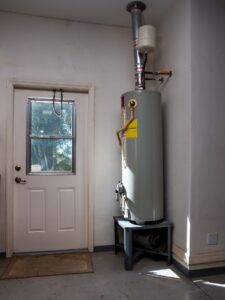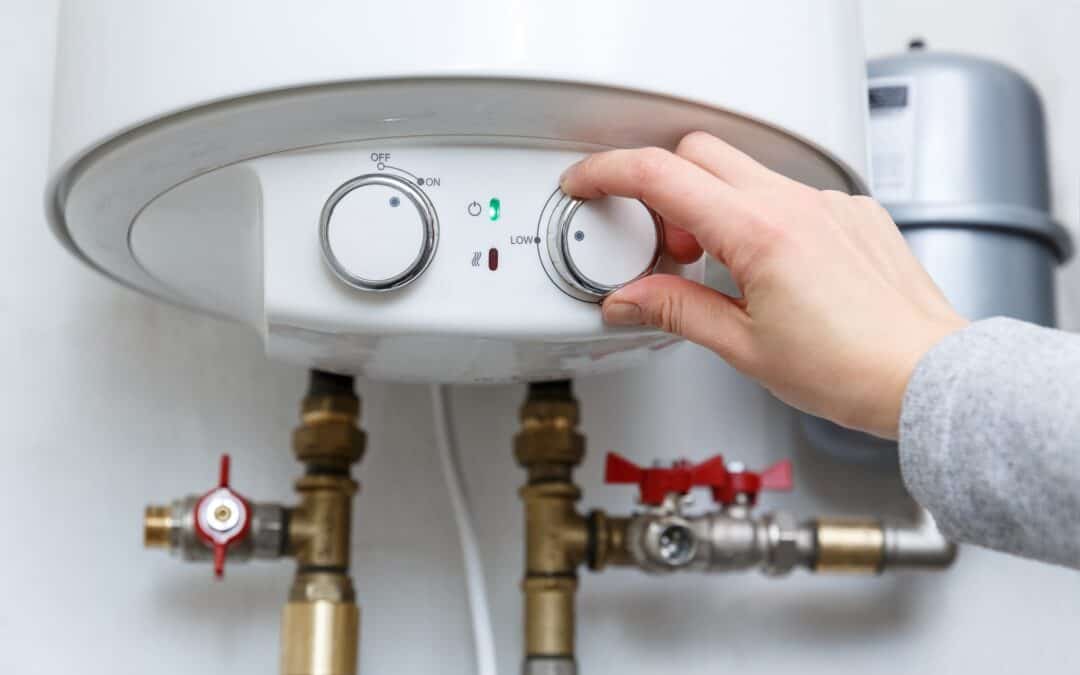Water heaters are essential for keeping our homes comfortable, but they can also be a significant source of energy waste. With the right strategies, you can make your water heater more efficient and save money on energy bills.
From simple do-it-yourself projects to full-scale replacements, there’s something for everyone here. So, if you want to start saving money while reducing your environmental footprint, read on for some effective techniques to prevent hot water repairs and make your water heater as efficient as possible.
1. Consider A Tankless Water Heater
Investing in a tankless water heater is one of the best ways to make your water heater energy efficient. Typically, these systems heat water only when needed, eliminating standby heat loss and drastically reducing energy costs compared with traditional storage tanks.
In addition, they are smaller in size than conventional models, making them easier to install and maintain. Typically, these units last much longer than their counterparts, so you won’t have to replace them as often.

2. Insulate Your Pipes And Water Tank
Insulating your hot water tank and pipes can be done by wrapping the entire tank with an insulation blanket or foam wrap kit specifically designed for this purpose. It will reduce heat loss from the sides of the tank and prevent condensation from forming on the outside surface.
You should also insulate any exposed hot water lines in your home that are connected to the water heater. This helps keep the heated water warm as it travels through these pipes, so you don’t waste energy reheating cold water. Additionally, insulating all pipes connected to your water heater will help minimize noise caused during operation, making things quieter around your house.
3. Install A Timer
A timer can prove especially useful if family members use the shower or sink at different times of the day and night. It allows you to set specific times for when your hot water tank will be on and off, conserving energy.
Furthermore, with this device installed, you’ll always know when your hot water tank will turn on and off according to whatever schedule you’ve established beforehand.
4. Lower Your Thermostat
Lowering the thermostat on your water heater is one of the most effective ways to make it more energy efficient. Most modern hot water heaters have a factory setting of 140 degrees Fahrenheit, but that’s optional for most applications. You can save up to 10% on energy costs by turning down your thermostat to 120 degrees or lower. This also helps reduce scalding and burns from overly hot water.
However, remember that if you’re using a gas-powered water heater, setting the temperature too low could cause condensation and corrosion inside the tank. This decreases its life expectancy.
5. Install Heat Traps
Heat trap fittings help reduce the heat lost from the hot water tank, which can save you a significant amount of money on your monthly utility bill. Fortunately, installing them isn’t difficult; you only need some essential tools and a few supplies.
Start by turning off the power source for your electric or gas-fired water heater. Next, locate and remove any existing insulation around the pipes connected to the tank and replace it with new insulation explicitly rated for use in hot water systems.
Then, look for special valves called ‘heat traps’ and install them according to manufacturer instructions. After installation, turn back on your power source so that you can enjoy lower energy bills immediately.
6. Always Check For Sediment Buildup
It’s vital to check for sediment buildup in your hot water heater regularly. Remember that it can decrease efficiency and shorten its lifespan. Typically, the best way to prevent excessive sediment buildup is by flushing your water heater annually with cold water. Doing this helps remove built-up minerals that could eventually lead to rust or corrosion within the system if left unchecked.
7. Fix Leaky Faucets And Pipes
Another effective way to make a hot water heater more energy efficient is by repairing leaky faucets. Leaky faucets can lead to unnecessary waste and higher costs for utilities. To fix a leaking tap, first, identify the source of the leak. If it’s coming from the handle, it could mean an issue with your washer or O-ring. Check both parts and replace them if necessary.
On the other hand, if you’re dealing with broken pipes, you might need to replace them completely. In this case, you’ll have to disassemble the line and locate the parts that need replacement.
Once all issues are addressed and repaired correctly, it will help reduce wasted water, leading to more energy efficiency for your water heater. This ensures that heated water is used efficiently.
Conclusion
Notably, there are several ways to make your water heater energy efficient. Investing in a tankless water heater is one of the best options available, as it helps you save money on electricity bills while providing an unlimited hot water supply. Insulating your water pipes and tank can also help keep heat inside for extended periods.
Additionally, installing a timer or turning down your thermostat will reduce energy consumption. Lastly, by repairing leaky faucets, you’ll get the most out of your water heater while keeping costs low. All these simple steps mentioned above can go a long way in helping you stay eco-friendly while still having access to all the hot water you need.

Recent Comments